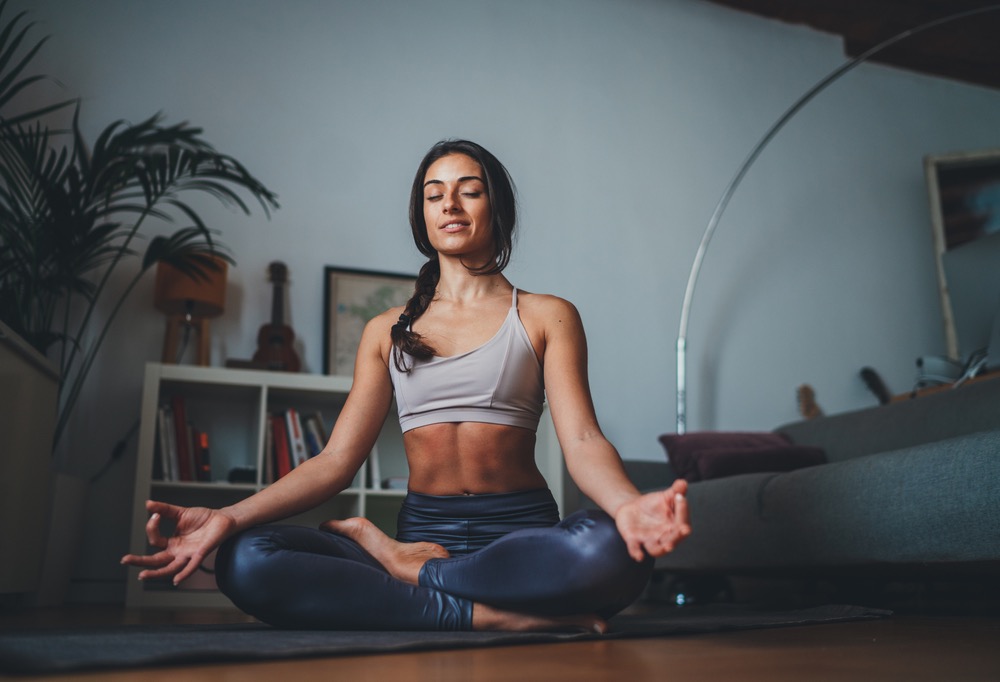It seems like there’s a new illness that’s wreaking havoc on the world these days, from new flu variants to the 1.16% increase in reported cases of Legionnaires’ disease. Luckily, there are a few small things you can implement into your daily life that will help you avoid getting sick. Even when you do get sick while following the advice below, it likely won’t be as severe as it could have been had you ignored the advice altogether.
MORE NEWS: Here are the Most Influential Women in Arizona Business for 2024
Keep Yourself Clean
It sounds pretty obvious that keeping yourself clean helps prevent illness, but the scope of good hygiene is often missed. The largest and most obvious parts are washing your hands, thoroughly washing your body and hair in the shower or bath, brushing your teeth, covering your mouth and nose when you sneeze and more. However, there are nuances here that can’t be ignored.
You probably remember that you’re supposed to wash your hands for a certain amount of time but never remember how long. Rubbing the soap on your hands should take at least twenty seconds. During this time, cover not just the fronts and backs of your hands but also get under your fingernails and scrub in between each finger as well.
Rinse well after twenty seconds have passed, dry your hand thoroughly and go on with your day. If you can’t wash your hands for whatever reason, then at least cover your hands in hand sanitizer. Do not replace hand washing with hand sanitizer, though; a balance of both will keep your skin healthy and relatively germ-free.
Washing your body and hair is another, more nuanced piece of hygiene. For example, it isn’t always healthy to shower every day. It can dry out the skin and possibly even damage your hair. If you don’t need to shower every day, then at least do so every other day to remove skin oil, dead skin cells, dirt and any other grime that naturally builds up.
Your hair needs to be washed at least twice a week, though how often you do so will vary based on your water and hair type. Every single part of hygiene has nuances, so don’t be afraid to do some research to find out what you may have been missing about these basic tasks.
Clean Your Surroundings
Cleaning your house is a chore you likely put off until the last second because it is incredibly time-consuming and tedious. This still needs to be done, of course, but cleaning the small things you use the most needs to be done a bit more frequently. While this is often forgotten, it isn’t anywhere near as tedious and time consuming as a deep-clean.
You should dust your home at least once every week, but any items that are frequently used, like remotes and door knobs need to be wiped down every few days. When someone in your household is sick, you may need to increase this and wipe them down multiple times a day. When you do this spot cleaning, wipe down every door handle, communal touch screen, computer mouse, remote controls and any other item that may be used on a frequent basis.
Get Enough Sleep
Sleep does a lot of good for the body, and one of the most important parts is boosting your immune system. Getting enough sleep at night is, therefore, one of the most important things you can do every day to stay healthy. This isn’t always easy though. You likely find yourself tossing and turning in bed for hours before you finally manage to start feeling tired or until your alarm starts blaring. This happens to everyone now and then and isn’t a big deal in isolation. If it happens more than once in a while though then you may have a problem.
Sometimes this is just a result of stress. Deep breaths or focusing on relaxing your body may be able to help in these cases. Racing minds may be relaxed by white noise like calming music or thunderstorms. Meditation, yoga and other mindfulness exercises may also help. If they don’t or you know you have a sleeping disorder, talk to your doctor about it.
Don’t Touch Your Eyes, Nose, or Mouth
The reasons to avoid touching your face during the day are numerous, but you probably find yourself doing it anyway. When you do this without cleaning your hands first, you’ll transmit the germs from everything you’ve touched since your last hand washing onto your face or even into your mouth, eyes or nose. It’s easy to see why this could cause a lot of problems. Luckily, there are ways to minimize the danger.
Of course, the best thing to do is avoid touching your face completely. If it were as easy to do as say, though we’d all get sick a lot less. Your face gets itchy, eyelashes fall into your eye, glasses need adjusted, your hair often falls on your face and causes itchiness while blocking your vision and more. All of this makes it incredibly difficult to keep your hands off of your face during the day. Instead of punishing yourself for these actions, though, instead focus on molding some routines around it.
Since you can’t wash your hands every time your face itches, keep a bottle of hand sanitizer close and rub it into your hands before scratching. Keep your hands far from your face after touching communal objects like in-office coffee makers or fridge handles until you can wash your hands. In general, just be more aware: the less you touch our face after messing with nasty stuff, the healthier you’ll be.
Get More Vitamin D
Increasing your vitamin D intake is a great way to boost your immune system and decrease the chances of getting sick. The most common way to do this is to take vitamin D supplements, but this may not be necessary. You could instead spend more time outside in the sunshine which provides a lot of other health benefits as long as you’re either not in direct sunlight for too long or are wearing plenty of sunscreen.
If this isn’t an option or you need an extra boost, you could also introduce vitamin D-rich foods like salmon or mushrooms into your diet as well. If you are on medication already or are sensitive to the foods that provide vitamin D, talk to your doctor about other ways to increase how much vitamin D you get.
Reduce Stress
It’s easy for you to get stressed; everything from considering the chores you need to do when you get home to tight deadlines will cause you to feel more anxious and nervous. Constant stress puts strain on your immune system and distracts you meaning not only are you likely to get sick, it may take you longer to notice early symptoms and suffer more as a result. The best thing you can do is to manage your stress.
Exercise, enjoying your hobbies, spending less time on your phone and meditation are all examples of ways you can reduce your stress, though there are definitely many more out there. If you struggle to massage your stress on your own then set up an appointment with a therapist because there could be an underlying disorder preventing you from finding peace.




